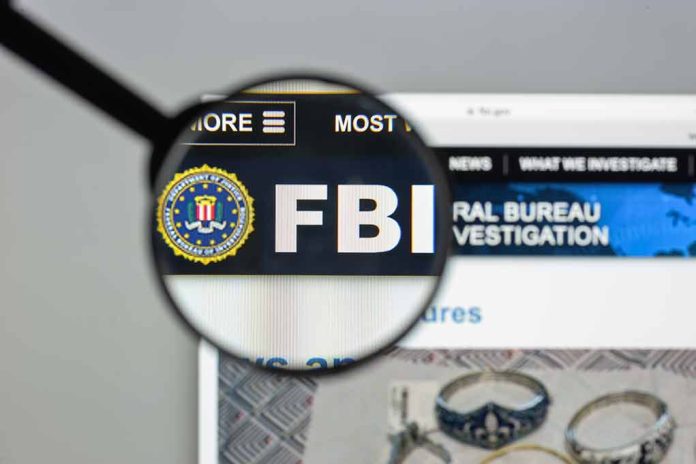
FBI Special Agent Eduardo Valdivia’s arrest on felony rape charges raises disturbing questions about integrity and accountability within law enforcement.
At a Glance
- FBI agent Eduardo Valdivia charged with second-degree rape and assault.
- Allegations involve manipulation via Instagram and fake modeling opportunities.
- The incident underscores the need for rigorous screening and accountability in law enforcement.
- Investigation follows Valdivia’s previous legal troubles involving a 2020 shooting.
Allegations Surface
FBI Special Agent Eduardo Valdivia faces disturbing criminal accusations from the Montgomery County Police Department, including charges of second-degree rape and assault. Valdivia is said to have used false personas on Instagram, enticing victims with fake modeling opportunities in exchange for free tattoos. This manipulation reportedly led to coercive encounters, as claimed by victims who were unaware of Valdivia’s true identity. These charges profoundly challenge the trust placed in those within pivotal law enforcement roles.
The accusations against Valdivia date back to early September and between mid-May and mid-June. The extent of the allegations suggests a calculated scheme under aliases “Lalo Brown” and “El Boogie,” luring unsuspecting women to a tattoo studio with promises of free tattoos in exchange for modeling. Authorities confirmed that victims delayed reporting due to threats of legal action by Valdivia if they broke contracts, highlighting the coercive environment he allegedly fostered.
Who is Eduardo Valdivia? FBI Agent accused of raping two women https://t.co/O3chPguifx
— Newsweek (@Newsweek) November 26, 2024
The FBI’s Response
The FBI has responded by suspending Valdivia and ensuring their cooperation with the Montgomery County Police Department during the ongoing investigation. Although the FBI has refrained from further public comments due to the investigation’s sensitivity, their decision to suspend Valdivia pending the outcome marks a significant step towards maintaining organizational integrity. This case underscores the necessity of selecting honest, ethical agents, reminding us of the expectations the public holds for federal law enforcement.
“The FBI takes allegations of criminal violations and misconduct very seriously. We are aware of the matter involving the recent arrest of an FBI employee and are fully cooperating with the Montgomery County Police Department. Because this is an ongoing investigation, the FBI cannot comment further.” – FBI Washington Field Office
“We’ve identified two victims as of this moment. One of the victims was offered a free tattoo in exchange to model the artwork.” – Montgomery County Assistant Police Chief Nicholas Augustine
Valdivia’s attorney, Robert Bonsib, has emphasized the presumption of innocence, refuting the allegations and claiming the interactions were consensual. Meanwhile, Montgomery County Assistant Police Chief Nicholas Augustine commended victims for reporting, acknowledging the bravery required to come forward given the societal pressure and power imbalance inherent when accusing a federal agent.
A Troubled Past
Before these allegations, Valdivia encountered legal troubles from a 2020 off-duty shooting incident. Previously acquitted of attempted second-degree murder, Valdivia had claimed self-defense during a confrontation on a metro train. This proceeding already shadowed his career, raising questions about his fitness for public-facing roles. While his professional journey spans various FBI appointments since his joining in 2011, this ongoing legal predicament places his career in jeopardy.
The allegations surrounding Valdivia highlight problems that can arise within law enforcement agencies, stressing the need for stringent mental health screenings and robust accountability measures. As these investigations unfold alongside Kash Patel’s nomination as FBI director, maintaining public trust in federal agencies requires immediate and transparent actions addressing misconduct at all levels.






















